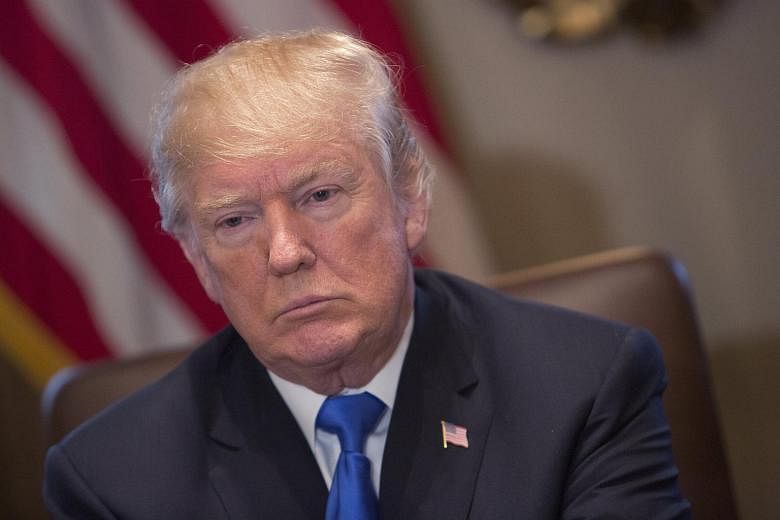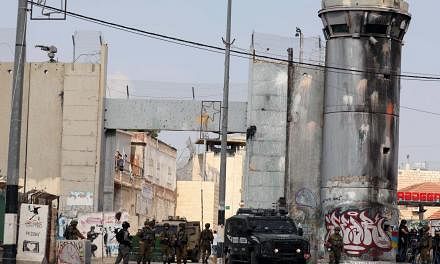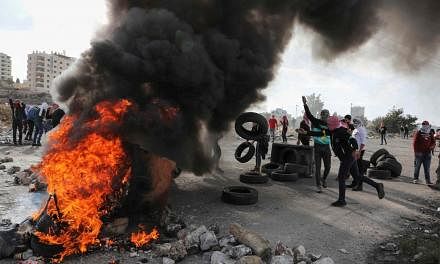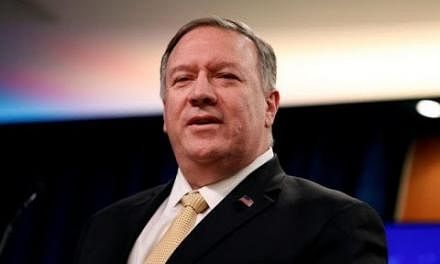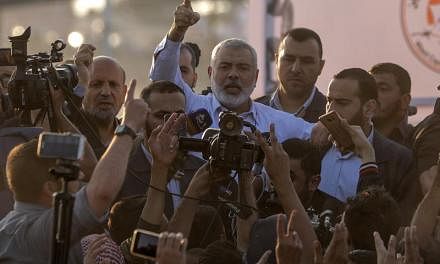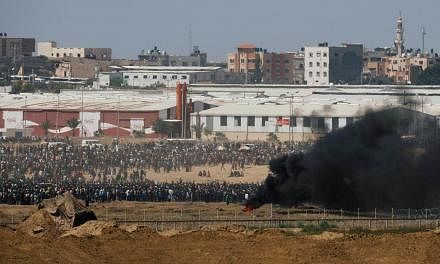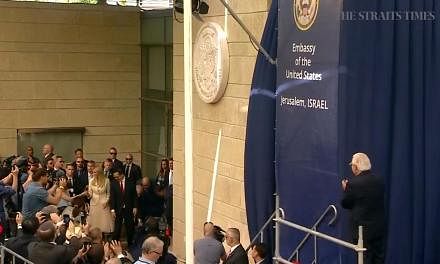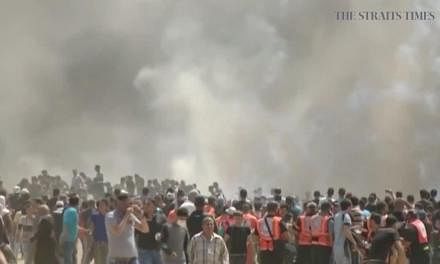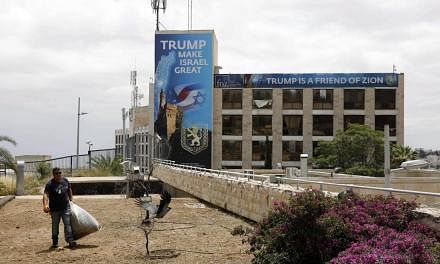NEW YORK - The State Department appeared to backpedal on threats by President Donald Trump and the United States' Ambassador to the UN Nikki Haley to retaliate against countries that voted against the US at the UN on Thursday morning (Dec 21).
The UN General Assembly adopted a non-binding resolution criticising the US' decision to recognise Jerusalem as Israel's capital and begin the process of moving its embassy there.
The resolution called upon "all states to refrain from the establishment of diplomatic missions in the Holy City of Jerusalem". It followed Mr Trump's Dec 6 announcement that the US recognised Jerusalem as the capital of Israel, and would accordingly move its embassy - currently in Tel Aviv - to the city, part of which is claimed by Palestinians.
The vote was seen as a major snub to Mr Trump and Ms Haley, who had in effect threatened to withdraw aid to countries that voted against the US.
In the end, as many as 128 nations voted in favour of the resolution. They included a raft of allies, among them France, Germany and Britain. India, Pakistan, China, Russia, Afghanistan, Iraq, Egypt, Jordan, Denmark, Finland, Thailand, Vietnam, South Korea, Japan, Malaysia and Singapore were also among those who voted against the US.
After the vote, Ms Haley tweeted a list of countries which had abstained from or not supported the resolution, saying: "We appreciate these countries for not falling to the irresponsible ways of the @UN."
Earlier, in a letter to ambassadors of UN member countries, Ms Haley wrote : "As you consider your vote, I want you to know that the President and US take this vote personally."
"The President... has requested I report back on those countries who voted against us," the letter added.
This, and a subsequent reiteration of the threat by President Trump, raised eyebrows in the diplomatic community.
"Pretty incredible," one diplomat told The Straits Times when asked about the letter.
Mr John. O. Brennan, a former director of the Central Intelligence Agency, tweeted: "Trump Admin threat to retaliate against nations that exercise sovereign right in UN to oppose US position on Jerusalem is beyond outrageous."
The outcome in the UN leaves the White House with the conundrum of how to react.
Mr Trump has, in the past, expressed disdain for the United Nations, and there is global concern over the US' seeming rejection of multilateralism under his "America First" policy.
Yet, his administration has also taken pains to cultivate UN resolutions condemning and sanctioning North Korea.
Later on Thursday, State Department spokesman Heather Nauert told journalists in Washington: "The UN vote is not the only factor that the administration would take into consideration in dealing with our foreign relations and countries who have chosen to vote one way or the other."
"In addition... the President's foreign policy team has been empowered to explore various options going forward with other nations, however no decisions have been made."
Mr Trump's recognition of Jerusalem as Israel's capital was in line with his campaign promises to his political base. It was also in line with a previous resolution in the US Congress which, however, previous presidents had not acted on, choosing instead to exercise a waiver on the transfer of the embassy, in essence because the issue of Jerusalem is so sensitive.
Mr Trump, in fact, also signed a waiver again on the issue of moving the embassy, and the State Department said the process of moving - including finding land and building an embassy - would take years.
But the Jerusalem issue is among the most emotive in the volatile region. Mr Trump's announcement was condemned by several other leaders, and sparked days of violent protests in the region. Last Friday, four Palestinians were killed in clashes with Israeli security forces.
The UN vote will have little bearing on the US' action - or inaction. And while it is being seen as a slap in the face for Mr Trump, the President also has the option of not rising to the snub.
"Trump has already fulfilled his campaign promise to move the US Embassy to Jerusalem, and the vague threat uttered by Ambassador Haley is sufficient to allow the White House to say they brandished the big stick in defence of principle," Dr Denny Roy, senior fellow at the East West Centre in Hawaii, wrote to The Straits Times in an e-mail.
"Of course we can't rule out that Trump might be personally highly committed to reducing US financial support for the UN," he wrote.
"But... it is more likely that his advisers will persuade him to follow the course of previous presidents, which is to accept that despite American frustrations with the UN, it remains useful on balance."
